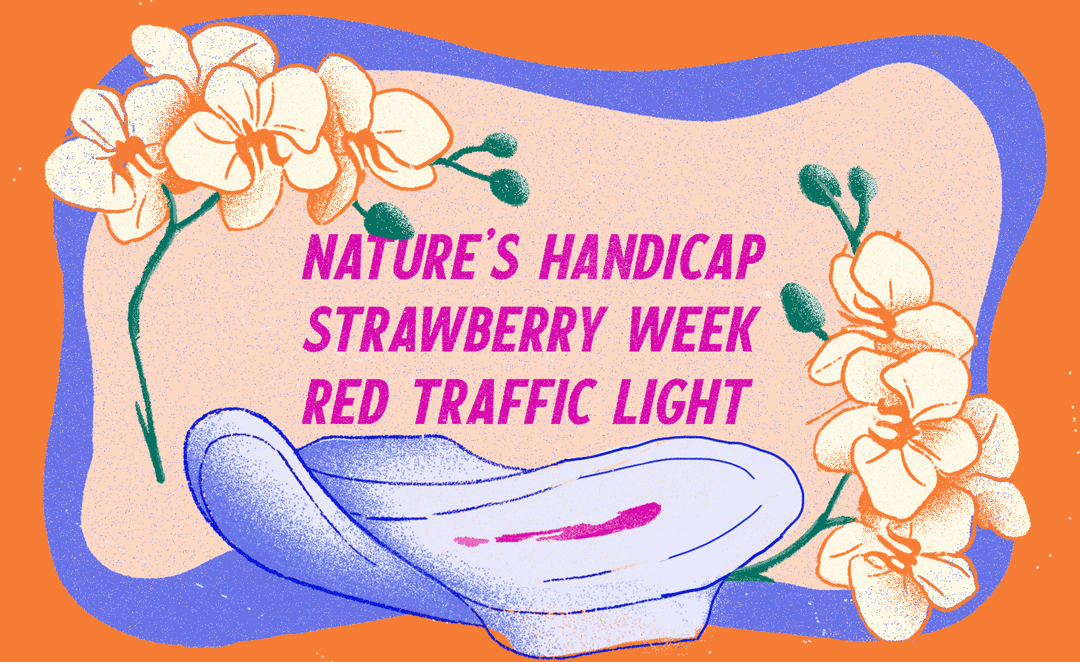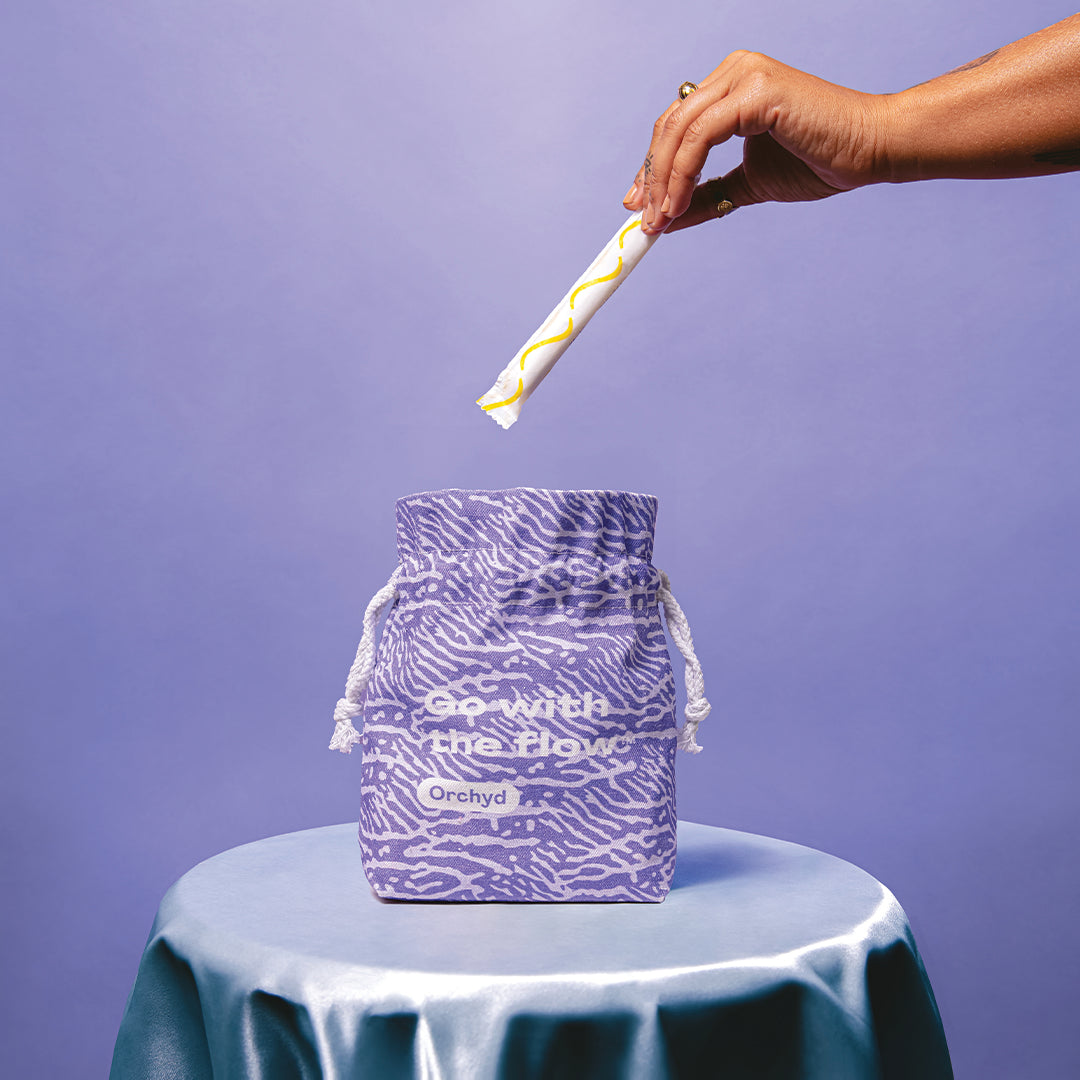
Language, Communication, & Period Care
Share
 Are you tired of the “Yes queen!” and “You got it, girl!” slogans on your period products? The use of “Aunt Flow” and “on the rag” and “Shark Week” used to describe your period? We are too. At Orchyd, we strive to eliminate the taboo surrounding periods and create an inclusive environment for all who menstruate, not just women.
Are you tired of the “Yes queen!” and “You got it, girl!” slogans on your period products? The use of “Aunt Flow” and “on the rag” and “Shark Week” used to describe your period? We are too. At Orchyd, we strive to eliminate the taboo surrounding periods and create an inclusive environment for all who menstruate, not just women.
It’s no secret that period care has long been associated with cis women and feminine gender expression. The packaging is pink, the commercial actors are cis female, and the hands holding the product are manicured. Though marketing agents think they’re successfully targeting their key demographic, they’re actually alienating entire trans and nonbinary populations. The neverending rhetoric that pairs periods with women is a destructive narrative that broadens the gap between our society and inclusion and forces all who menstruate to conform to the cis female expression whenever they need to purchase menstrual products.
But Orchyd strives to carve out space for itself, and its users, in the period care industry. Our goal is to remove stereotypes, respect identity and sexuality, and push the boundaries on what is considered “the norm.” That is why we designed the Orchyd app the way we did. We hope to be a driving force for change in period care and hopefully encourage more and more companies to reimagine their campaigns to be more inclusive and less female-dominated.
And change is already coming. Bodyform UK recently released a commercial showing red blood on menstrual pads to show absorbency rather than the typical blue dye. “Contrary to popular belief, women don’t bleed blue liquid, they bleed blood. Periods are normal. Showing them should be too.” Their commercial also features a trans man purchasing tampons, making them one of the few companies to feature a trans man in a period commercial. These are significant steps in the right direction, but our male character is purchasing pink shrink-wrapped menstrual products in the commercial. The next step in this revolution is to neutralize the menstrual narrative and allow men to buy period products that aren’t exclusively marketed to women.
When discussing period language, it’s also important to note the effects of using euphemisms and nicknames for periods. Though seemingly harmless to refer to your period in code, these phrases can reinforce the idea that a period is embarrassing and not appropriate to talk about amongst others. When we allude to our period instead of outright addressing it, we add to the idea that periods are a taboo topic that cannot be discussed outright. This is a vicious cycle, as the more we avoid a subject, the touchier it becomes. But using slang to clean up menstrual talk has been around for generations. Today, there are over 5,000 euphemisms in ten different languages for referring to periods, such as Erdbeerwoche (German, “Strawberry week”), Malere i opgangen (Danish, “painters in the stairway”), 女の子の日 (Japanese, “girl’s day”), or Sinal vermelho (Portuguese, “Red traffic Light”).
This bleeds into (see what I did there?) the period advertising space as well. “Period product advertising over the past century has done everything in its power to deny that period blood exists,” writes Jane Connory. In her study, she analyzed 100 period product advertisements from 100 years of Australian women’s print magazines. She found that “it wasn’t until 1974 that the word “period” was actually used. Periods were referred to as “liquids” or “fluids” and were given shameful euphemisms like “nature’s handicap.” These intentional marketing models force "having a period" into a secretive behavior and promote behaviors and messages that frame this natural occurrence as shameful.
At Orchyd, we believe that it is time for a fundamental change in the menstrual care industry. We stand for transparency and inclusivity and support these values through deliberate action and design because our app and products are designed for everyone who menstruates, not just women. This includes gender-neutral colors for our Orchyd Wallets and product descriptions that do not assume gender identity or play off of stereotypes. We’re also going to call it what it is: a period. So although there are still plenty of pink packaged tampons and “Aunt Flows” coming to town, we hope to cultivate a new space within the industry that celebrates periods for–and by-all.

